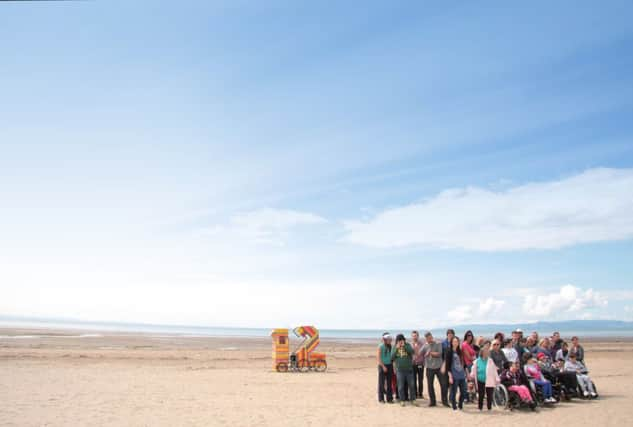Finding the right care standard means asking questions


Who are you? And what makes you who you are? Who would you be if you only spent time with people “allocated” to be with you, determined according to a system that decided for you which of your needs and rights were affordable, and worthy of protecting? Sense Scotland’s Family Advisers know that this is how many disabled people (and often, by association, their families) experience life.
If identity is taken as being a collection of characteristics, or an affinity with others who share our interests, how do we develop it, and how do we hang on to it?
Advertisement
Hide AdAdvertisement
Hide AdThis year has thrown up so many opportunities for people who identify themselves with a particular group. The Commonwealth Games had both its athletes and its sports fans; the Edinburgh Festival its artists and art lovers; the referendum its Yes, No and Really Not Sure camps..
Sense Scotland works with people who have communication support needs. Its work recognises the importance of that sense of connection and opportunity to share interests and experience which is key to developing a sense of self and explaining who we are to others.
Across Scotland we support artists; musicians; sports fanatics; comedians; fresh-air fiends, kind friends and favourite aunties. We do this by getting to know people and those who know them well.
Together, we identify barriers and the solutions to overcome them. This all sounds like common sense but in a time of austerity how easy is it to support people to express their identity?
If someone experiences fewer opportunities and choice due to service cuts, increased charges and welfare benefit changes, will that change how they are perceived? What is identity, if there is no-one there to share it?
Recently, the Care Inspectorate has been consulting on how to improve their National Care Standards for care and support services. They are indicating a move towards monitoring more explicitly how services uphold human rights principles – and that’s welcome. Particularly as we will almost all need to use them ourselves at some time in our lives, or love someone who will.
Existing standards are far from unfit for purpose, but the timing of this review, coinciding as it does with the unenviable decisions on spending priorities faced by councils, offers the perfect opportunity for us all to think about what is important to us. Wouldn’t it be welcome too, if we could be confident that the quality of any service we or our loved ones use, or will use in the future, is measured against how it helps us to keep and develop our identities? This requires measurements over time, rather than snapshots.
Truly acknowledging the human rights of freedom of thought, freedom of expression and the right to play could play a key role in this. In a time of austerity, focus on these values is all the more important.
Advertisement
Hide AdAdvertisement
Hide AdThe Care Standards review is no easy task, as the following example illustrates. A number of enthusiastic artists upported by Sense Scotland worked together recently to create a countdown number for the Commonwealth Games – their creativity developed the best number by far of course – one you can cycle around on, sit in, look at and admire. How do you assess a service that supports that kind of activity? Of course there are key areas – safety, training, supporting personal choices – but number 12 came about because of nurturing talent, creativity, collaboration and taking time – qualities not always included in specifications for services. But there is clearly a growing potential for this with people increasingly specifying for themselves what they want out of life.
The review of the National Care Standards needs to be placed in the context of what part the services being assessed play in providing a true quality of life. That part is often very small. What about the rest of a person’s life?
We need to be honest about what makes us who we are, and whether we believe we have a right to hang on to that as we experience the various challenges life throws at us. If we want it for ourselves, why would we place a lower priority on it for another person? Sometimes we are the other person.
• Megan Wilson is head of service development and contracts at Sense Scotland.
SEE ALSO